This is a very odd book that Jean Stein has compiled — about the evanescent splendour of Los Angeles, which only occasionally touches on the film industry. Its setting’s most memorable landmark appears to be the name of one of its districts, written in enormous white letters on a hillside. That, and various opulent houses, preserved in one movie after another and generally concealed from public view. Stein’s subject is the failure to leave any kind of a mark — despite huge spectacle and expenditure; and witnesses are reduced to repeating over and over again,‘Well, you should have been there at the time.’
She tells five stories. The first concerns the Doheny family, whose wealth derived from Los Angeles’ main commodity before films: oil. The patriarch, Edward L. Doheny, was the principal operator in the Mexican and Californian oil fields until the 1930s. (In the 1920s, Los Angeles wells produced 20 per cent of the world’s oil). His son Ned almost certainly shot and killed his secretary and possibly lover, Hugh Plunkett, before killing himself.
Second, there is Jack Warner of Warner Bros — a notoriously vile person. He made an immense fortune in the early days of film, and lived in grand style, with a golf course in his garden which was never used. The colossal house was designed and dressed by the studio art department. This proved a problem when the business magnate David Geffen bought it years later and took his interior designer to see it:
I said: ‘This wallpaper was from the imperial palace in China.’ She said: ‘This is French wallpaper from 1870 or 1880.’ I pointed to another piece and said: ‘This is a Chippendale.’ She said: ‘The original is a Chippendale and in the Victoria and Albert Museum. This was made at Warner Brothers.’
Jack Warner was a fool, and went along with the McCarthy investigations into communists in Hollywood to the point of naming names off the top of his head. Despite all the bluster, his testimony reveals a coward:
Ideological termites have burrowed into many American industries, organisations and societies. Wherever they may be, I say let us dig them out and get rid of them.
His second marriage was to a monster called Ann, last glimpsed in a muumuu, demanding that her chauffeur stop so that she could gorge herself at a welfare restaurant on chicken wings, much to his humiliation (‘I come from a very distinguished Spanish family in Chile, much better than the Warners’). Jack’s chief enjoyment was that entertainment for the empty-headed: gambling. He is the subject of the most amusing photo caption of the book: ‘Mr Jack Warner, astride a lion, surrounded by yes-men.’
Third, there is Jane Garland, the pathetic schizophrenic daughter of another rich couple, who was cared for in private circumstances rather than in hospital. Her sad story is told in invasive detail by people who had no medical knowledge, and who in some cases took horrible advantage of her vulnerability. This episode is one of the most unpleasantly salacious things I’ve ever read, and quite unjustified.
Fourth, the actress Jennifer Jones, who is nearly forgotten now, strangely. She won an Oscar for her first starring role in The Song of Bernadette, and subsequently appeared in Madame Bovary, The Barretts of Wimpole Street, Love is a Many-Splendoured Thing and Duel in the Sun. She was never really a box-office favourite — which perhaps explains her story. After a first marriage to Robert Walker (remembered for his role as the sinister Bruno Anthony in Hitchcock’s Strangers on a Train), she made a habit of marrying well. Her second marriage was to the paranoid, amphetamine-addicted film producer David O. Selznick, long after his glory days of King Kong, Gone with the Wind and Rebecca; and her third was to Norton Simon, an immensely wealthy art collector. (His collection was, one might reflect, the only thing that any of these people left behind worth being remembered for.) Jones, who had been born Phylis Lee Isley, was renamed by Selznick and lived with him in extravagant style and with very curious social manners.
One guest recalled:
We’d sit down, and dinner would begin. Finally Jennifer would appear for the first time, at least two and a half hours after dinner had started, in the most gorgeous evening dress you’ve ever seen. She would walk the length of the room, go to every table, shake hands and kiss everybody, and then disappear. She would come back later in a second dress and then disappear again. She never sat down. We’d have coffee in the living room and she would appear in a third dress. I’ve never had such a good time.
By the time Jennifer was married to Simon, she was spending the price of ‘a house in the valley’ on hair and make-up every year, according to the man who was charging her. At the same time, she persuaded Simon to lavish yet more money on his interiors. Towards the end, she grew a little confused — for instance, at the funeral of the Los Angeles psychoanalyst Milton Wexler. According to her son, Bob Walker:
It was a major, major party… it was crazy. All the best doctors, all the best analysts and scientists were there. It was an incredible get-together. Mom wasn’t sure if Milton had been her husband. She’d talk about him. ‘I miss him; were we ever married?’ ‘No, Mom, he was your analyst.’
This is possibly the first time the success of a party has been judged by the fact that it was full of scientists, but never mind.
Finally, there is the story of the author’s own childhood house (now owned by Rupert Murdoch). The interests of the very rich are explored (‘I became close to your father,’ says one interviewee, ‘because he was fascinated by taxes and money’). Ghostly reminiscences of previous chapters’ heroes also appear here. It is all moderately interesting — and makes one think that there is no oblivion like the one that money confers on its possessors. In the 1920s Edward Doheny approached Cecil B. De Mille with the idea of making his film biography (which ‘rather amused’ De Mille). Now Doheny is forgotten — though we are told that Paul Thomas Anderson’s recent film, There Will Be Blood, is based on his life. But this is only one of several sources. It is really a free adaptation of Upton Sinclair’s Oil!
West of Eden is presented in a curious way, and one which seems to be increasingly popular in American publishing (I reviewed a similar book about J.D. Salinger a couple of years ago). It imitates the TV documentary style of talking heads. Quotes are successively ascribed to witnesses, and the stories are told by people who were there. This has its drawbacks. Some people are gifted storytellers, such as the excellent science-fiction novelist and Doheny grandson Larry Niven, who tells a good one about his grandmother showing her bum to her gynaecologist at a party. But most people just drearily summarise what other people were like, without the telling detail. Of Ned Doheny someone says:
Apparently he had a great sense of humour and was a lot of fun, but I wouldn’t be surprised if there weren’t some issues with depression. I have a strong sense that there was loneliness there.
The book gives only the most cursory credits for some of these quotations. Sources like Arthur Miller and the McCarthyite trade unionist Roy Brewer died a decade or more ago. Others simply don’t sound like interviews. The art curator Walter Hopps says of Norton Simon: ‘By the 1970s, many millions later, he had acquired an extraordinary art collection — and Jennifer Jones was a prize possession indeed.’ Yet other quotes are clearly part of transcribed conversations, as when Anne Terrail says of her grandfather Jack Warner:
But who cares if someone is charming if they are not there? I feel he didn’t want trouble. That is what I feel. It went down three generations. Now, I am trying.
There is a plain ethical duty here to state whether the quotations are printed, or from interviews or from correspondence. It’s boring, I know, but there is no excuse for omitting your sources, even — or perhaps especially — when the stories have so thoroughly sunk into the opulent oblivion that they have here.
Got something to add? Join the discussion and comment below.
Get 10 issues for just $10
Subscribe to The Spectator Australia today for the next 10 magazine issues, plus full online access, for just $10.
Available from the Spectator Bookshop, £20 Tel: 08430 600033
You might disagree with half of it, but you’ll enjoy reading all of it. Try your first month for free, then just $2 a week for the remainder of your first year.

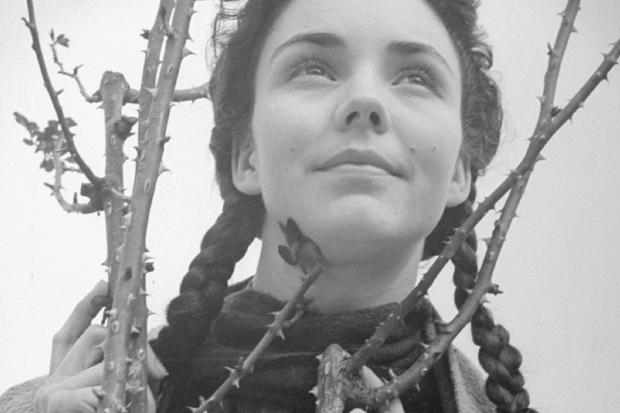


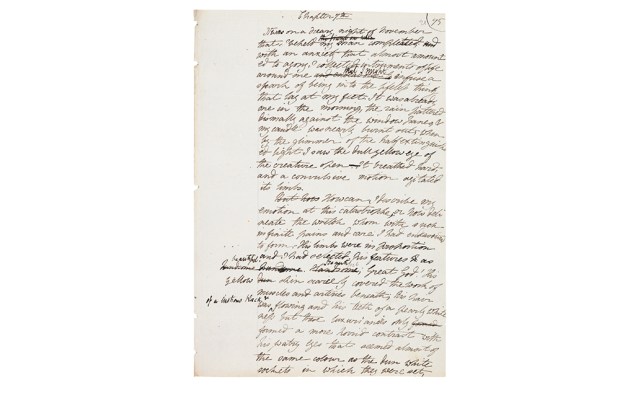
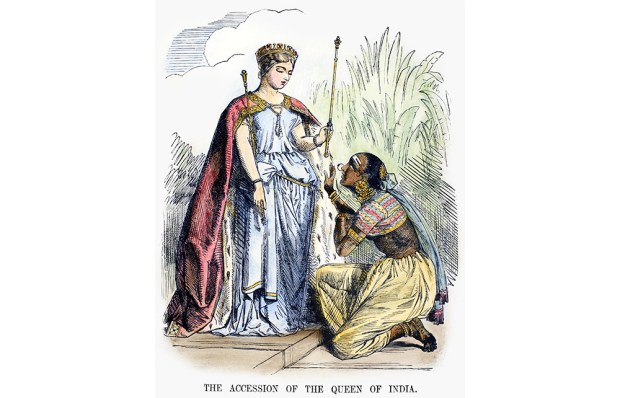
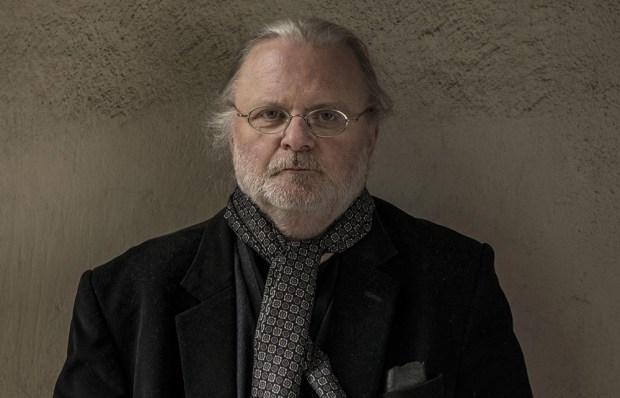
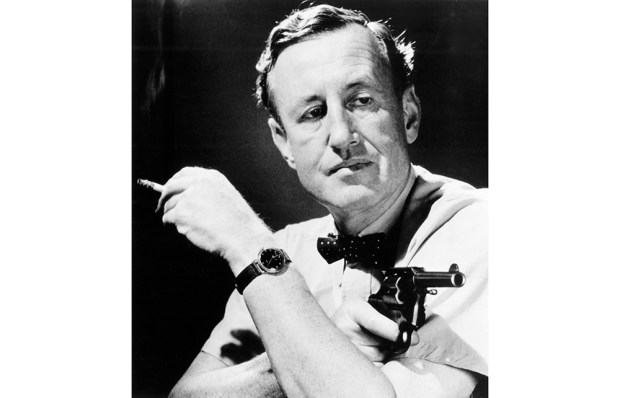






Comments
Don't miss out
Join the conversation with other Spectator Australia readers. Subscribe to leave a comment.
SUBSCRIBEAlready a subscriber? Log in